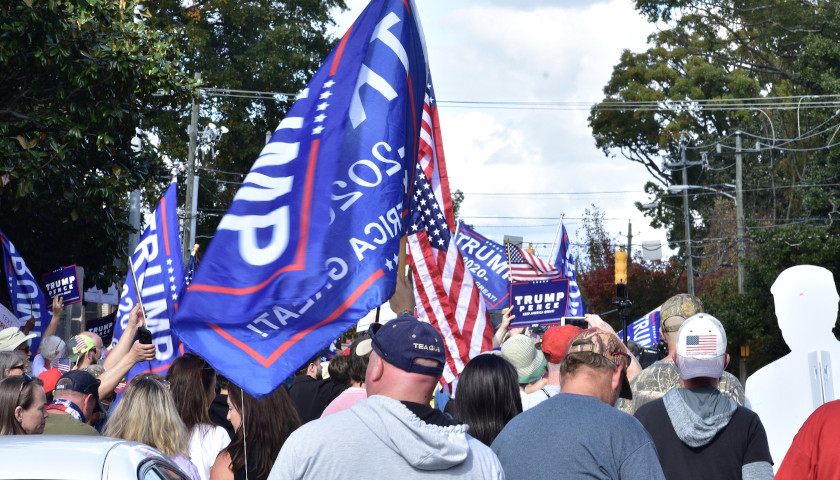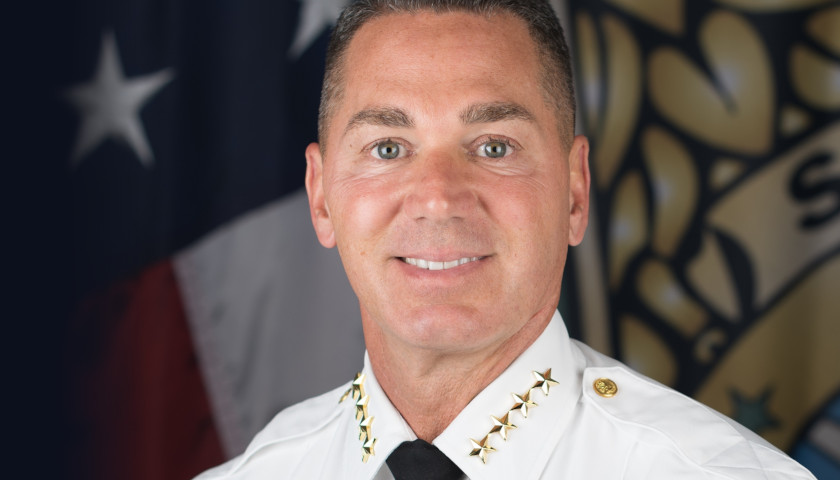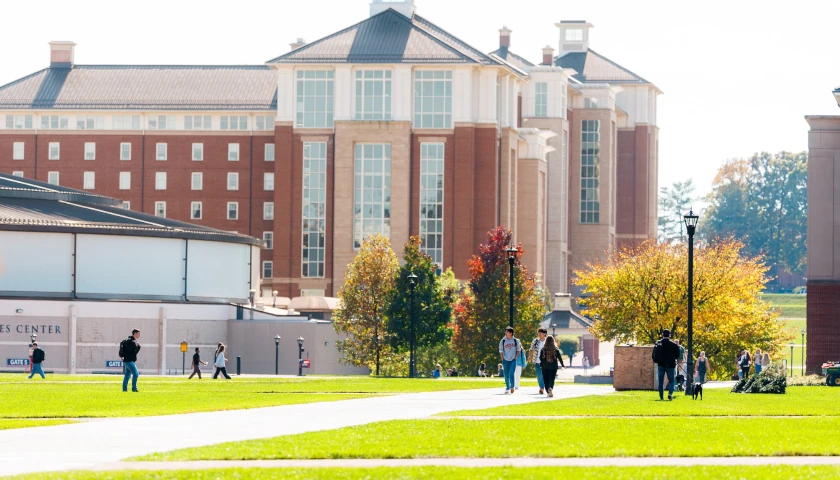by John C. Eastman
The media-generated controversy over the legal memo I wrote in January (a preliminary, incomplete draft of which was recently made public) outlining the possible scenarios for the certification of the electoral vote is another instance of the press whipping up a frenzy around a false narrative and thereby further undermining its own legitimacy.
The carefully curated snip, lifted from a preliminary draft, showed only one scenario out of the many that had been floated, including in a prominent and lengthy article published by the far-left Atlantic Monthly on September 23. The most puzzling result of this “gotcha” is that in my memo I do not even recommend the alternative which they claim I do. But being out for blood, this doesn’t matter. America’s intellectual elites are bloodhounds who, having lost a taste for sniffing out the truth, now devour anything contrary to their ideology.
Each of the scenarios I presented was grounded in constitutional text and supported by scholarly writings or prior judicial precedent. They were presented to serve as the basis of a full discussion of all the options available to our elected leaders, premised on the assumption of proven electoral fraud or illegality.
Ironically, the scenario I actually recommended to Vice President Mike Pence was that he accede to requests from numerous state legislators, including the president pro tempore of the Pennsylvania state senate, to delay the proceedings long enough for the legislatures in the contested states to assess the impact of acknowledged illegality in the conduct of the election.
Indeed, I explicitly stated to Pence during an Oval Office meeting on January 4 that even assuming he had constitutional authority to reject contested electoral votes, it would be “foolish” to exercise any such authority in the absence of the state legislatures actually having certified the alternate Trump slate of electors.
As the final version of the memo (embedded below) makes clear, the memo’s premise was that state election officials ignored election laws, such as signature verification requirements, prohibitions on ballot harvesting, and allowance of observers during ballot counting. These illegalities, without question, took place. Such election laws, adopted by the state legislatures pursuant to their plenary authority under Article II of the Constitution, were designed to help prevent fraud, and their violation had resulted in illegal certification of Biden electors in states in which it was unclear who had legally and constitutionally received the most votes. Apparently, though, the media hounds accusing me of “undermining democracy” or attempting to “overturn the election” do not care about the enforcement of such laws, which are the basis of our trust in the outcome of elections.
In fact, it was because of these and other illegalities that Trump electors in seven swing states met (albeit of their own accord) on the date Congress had set for the casting of electoral votes, just as the John Kennedy electors in Hawaii had met (also of their own accord) on the appointed day in December 1960, and as Al Gore’s electors had planned to meet in Florida before Gore’s concession rendered that plan moot. Those electors then cast their votes for President Trump and transmitted those votes to Congress, premised on the assumption that the illegal election conduct might yet prove to have been enough to produce different results and that still-pending election challenges would ratify their votes.
The memo’s proposals aimed to prevent certification of a potentially illegal election—and this is what the hounds call “overturning the election” and urging a “coup.”
Part of the memo relied on a September 2020 article by Harvard Law Professor Laurence Tribe, in which Tribe hypothetically posits that Biden had achieved 288 electoral votes, more than the 270 needed to form a “majority” of the 538 total electoral votes, but that among those were Pennsylvania’s contested 20 electoral votes. If Pennsylvania’s 20 votes were rejected as improper, that would bring Biden’s total down to 268, short of the 270 normally required. Of critical importance, Tribe explicitly argued that under such a scenario, Biden would still be elected because he would have a “majority” of the 518 electors actually “appointed.”
Simply applying Tribe’s constitutional analysis, I noted that if all 84 of the contested electoral votes were disregarded on the grounds that they were based on the counting of explicitly illegal ballots, Trump would lead 232 to 222—a majority of the 454 actually “appointed.” And under Tribe’s constitutional analysis, Trump would have won. Tribe has accused me of taking his argument “wholly out of context,” but the only change in the “context” is that Tribe’s preferred candidate would have prevailed in his hypothetical, but not in the scenario presented by the actual alternate slates of electors who cast votes in December. That may be a different factual “context,” but it is not a different legal context. Tribe’s position hardly qualifies as legitimate legal analysis if it changes depending on the outcome.
Finally, the memo unambiguously acknowledges that if, after formal investigation by the legislatures in the contested states, it was determined that any proven fraud and illegality was “insufficient to alter the results of the election, the original slate of electors would remain valid” and Biden would prevail when the joint session of Congress reconvened. That is the plain text of my full memo. But one should not be surprised that the hounds neglected to mention it.
It is absurd and dangerous to pretend that anyone was urging the vice president to “overturn the election” or launch a “coup.” The memo outlined ways to ensure election integrity in the face of significant and demonstrable violations of state election law that, as the Pennsylvania legislators noted, yielded “election results [that] should not have been certified by [their] Secretary of State.” If, in fact, the acknowledged illegalities that took place in the several swing states had a sufficient impact to alter the results—and evidence from audits in Arizona and Georgia, among others, points in that direction—then it simply must be acknowledged that the analysis in the memo was designed to prevent an unconstitutional election, not overturn it.
In these extraordinary, hyperpartisan times, Democrats, anti-Trump Republicans, and their chorus in the corporate media will grab on to any hook to further the narrative that there is “no evidence” to support Trump’s claims of illegal actions in the last election, but the fact is that there is extensive evidence supporting this. Recent analysis in Georgia, for example, has confirmed that thousands of ballots were scanned and counted multiple times, and that tens of thousands of ballots were cast by people who, having moved more than 30 days prior to the election, were no longer eligible to vote.
Don’t my critics want every legitimate vote, but only legitimate votes, to count? These and the numerous other election irregularities deserved—and still deserve—a full airing if the American people’s faith in our election system is ever to be restored. Yet those who claim to love democracy most are the least interested in having secure and above-board elections, or even tolerating those who would raise the concerns shared by tens of millions of their fellow Americans.
Privileged and Confidential… by American Greatness
– – –
John C. Eastman is the Henry Salvatori Professor at Chapman University’s Fowler School of Law, and a senior fellow at the Claremont Institute.
Photo “Trump Supporters” by Anthony Crider. CC BY 2.0.




